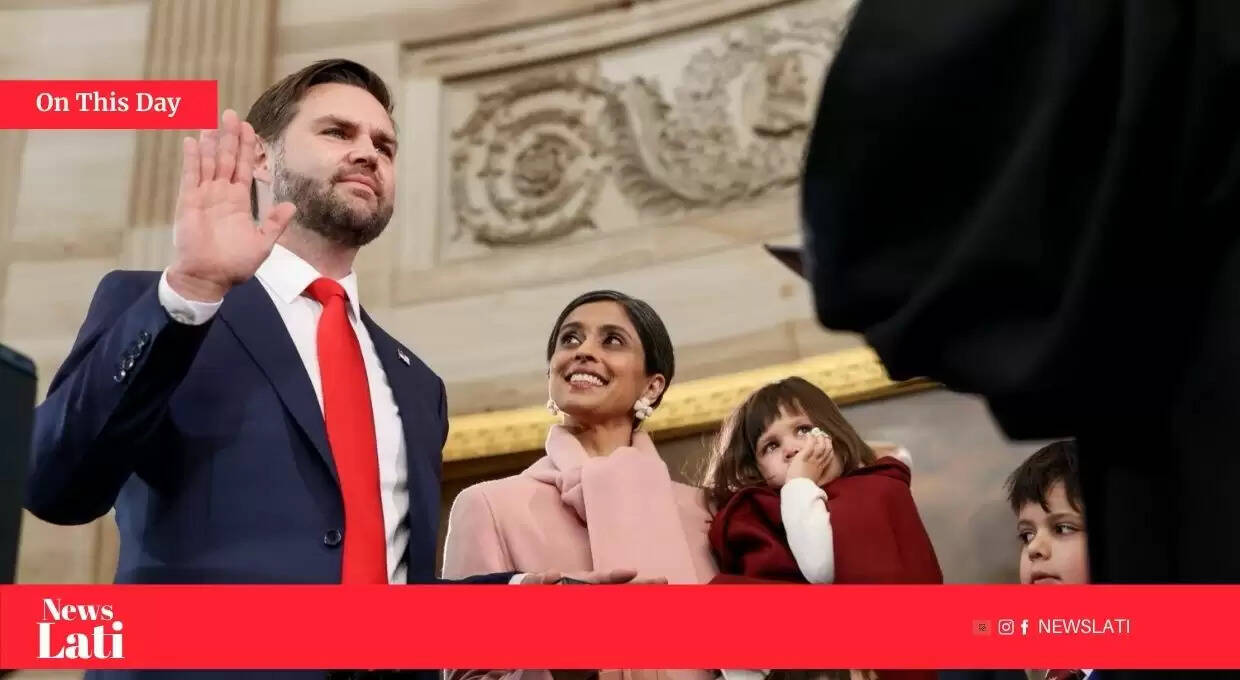JD Vance: America's First Catholic Vice President in Modern Times
From 'Hillbilly Elegy' to the Vice Presidency - A Journey of Faith and Politics

-
First Catholic VP: JD Vance becomes the first Catholic Vice President since Joe Biden, marking a significant moment for American Catholics.
-
Early Life: Raised in poverty in Middletown, Ohio, his life story captured in "Hillbilly Elegy".
-
Conversion to Catholicism: Influenced by philosophical inquiry, personal transformation, and the search for meaning.
-
Political Career: From a 'Never Trump' stance to becoming Trump's running mate, showcasing a remarkable political evolution.
-
Family and Faith: His interfaith marriage and commitment to integrating Catholic values into his public life.
In a historic turn of events, JD Vance has been sworn in as the 50th Vice President of the United States, becoming the first Catholic Vice President since Joe Biden, thus etching his name into American political and religious history. His rise from the pages of "Hillbilly Elegy" to the vice presidency is not just a tale of political ascent but also one of personal transformation, particularly his journey into Catholicism.
Early Life and Rise to Prominence:
James David Vance was born into a family marked by the struggles of the working class in Middletown, Ohio. His life was shaped by poverty, family turmoil, and the strong, yet sometimes tumultuous, influence of his grandmother, whom he affectionately called Mamaw. This upbringing is vividly detailed in his bestselling memoir, "Hillbilly Elegy," which not only catapulted him into the public eye but also provided a lens through which many could understand the challenges of America's Rust Belt.
Vance's early life was fraught with adversity, including drug use and academic struggles, but with the guidance of his grandmother and his own determination, he managed to turn his life around. He served in the U.S. Marine Corps, which instilled in him discipline and a sense of duty. His academic journey took him from Ohio State University to Yale Law School, where he was exposed to different worldviews and philosophies that would later influence his conversion to Catholicism.
Conversion to Catholicism:
JD Vance's conversion to Catholicism in 2019 was not an overnight decision but a culmination of years of introspection, philosophical exploration, and a personal quest for meaning. His journey was influenced by several factors:
-
Philosophical Inquiry: While at Yale, Vance engaged with the works of philosophers like Basil Mitchell, whose ideas on faith and doubt resonated with him. This engagement with philosophy led him to consider the intellectual depth of Catholicism, which offered answers to his existential questions.
-
Personal Transformation: His memoir and subsequent life reflections highlighted a need for something beyond material success. Vance wrote about his atheistic phase but how he was drawn back to faith through the Catholic Church's emphasis on virtue, community, and the sanctity of life.
-
Search for Meaning: Vance articulated in essays and interviews how Catholicism provided him with a framework to understand the world's brokenness and his own place within it. He discussed how the faith helped him reconcile his personal history with his aspirations for a just society.
His conversion essay for "The Lamp," titled "How I Joined the Resistance," detailed this spiritual and intellectual journey, emphasizing resistance not just against societal ills but against personal vice and towards virtue.
Political Evolution:
Vance's political journey has been as dynamic as his spiritual one. Initially, he was known for his "Never Trump" stance, but over time, he aligned himself with Trump's policies, culminating in his selection as Trump's running mate for the vice presidency. This shift was partly due to his evolving views on populism, economic policy, and the role of government, which he saw as aligning with Catholic social teaching, particularly in terms of protecting the vulnerable and ensuring economic justice.
His political philosophy, often described as part of the "postliberal right," emphasizes community, family, and a skepticism of laissez-faire capitalism, resonating with his faith's social doctrines. Vance's public positions, like his nuanced views on abortion and immigration, reflect this attempt to reconcile personal beliefs with political pragmatism.
Family and Public Life:
Vance is married to Usha Chilukuri Vance, who was raised Hindu, showcasing an interfaith union that is rare at the highest levels of American politics. They have three children, and Vance has spoken about how his faith influences his family life and his aspirations for public service. His commitment to living out his faith in both personal and public spheres is evident in how he discusses policy, often weaving in Catholic principles of dignity, community, and social responsibility.
Impact and Legacy:
As Vice President, JD Vance represents not just a political figure but a symbol for American Catholics, especially those who see in him a reflection of their faith's potential influence on American policy and society. His life story, from poverty to the pinnacle of American governance, coupled with his spiritual journey, provides a narrative of hope, redemption, and the enduring quest for meaning.
Vance's tenure as Vice President will be watched with interest by those who ponder how his Catholic faith will inform his decisions on issues like immigration, healthcare, and international relations. His story is one of America's melting pot, where personal faith, cultural heritage, and political identity converge to shape leadership in a nation known for its diversity and its deep religious roots. As America's first Catholic Vice President in this new era, JD Vance's life story and conversion to Catholicism continue to inspire and provoke discussion on the role of faith in public life.
